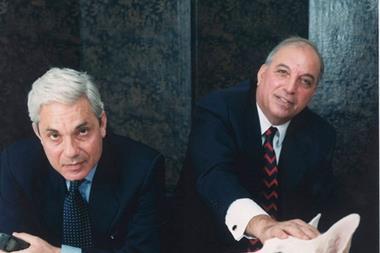The Sunday Times Rich List always makes interesting reading and it is enjoyable to marvel at the wealth.
Property has long been the foundation for much of the reported wealth, and a number of us may well know one or two of those on the list. But you will have noticed the rise of hedge fund managers, media stars and others, and many of those may be quite a mystery to some. The world is changing.
What struck me this year is that the total wealth listed increased by 13% over that recorded last year - a healthy return indeed.
This left me wondering: how did they achieve that? And then I wondered if the real message was not the competence of these individuals to run their businesses (which I am sure is very high) but that the value of “things” has gone up substantially. Thirteen% is a very good return by any measure, but especially so when the price of money is so low today.
Interest rates are as low as history records, encouraging companies and the public to borrow and make investments.
Historically, owning government bonds was the default risk-free return, but today people talk of it being the return-free risk. Return free, because there is now almost no income from holding bonds, and risk, because if interest rates go up, the owner suffers a loss of capital. Low bond yields underpin risk appetite, promoting investment into higher-yielding investments such as property and equities, which is why the prices of these assets has gone up.
There is another way of expressing this phenomenon - inflation. That might surprise you if you look at CPI and RPI statistics, but not if you treat these cost of living indices with some scepticism.
UK CPI inflation data for April 2014 has just been reported at 1.8% year on year. Some even forecast it to fall further in 2014, though admittedly it still bears close relation to the formal Bank of England target of 2%. The data seems to confirm that price pressures in the UK economy remain subdued in the light of muted producer prices, sterling’s strength and measured earnings growth. RPI data is not much more as mortgage interest spreads have narrowed slightly. But the rich list still managed 13%.
There are other dislocations. House prices in London and the South East are 20% higher than in 2007, yet nationally they are 2% lower. Inflation indices in Europe are even lower than in the UK, yet anecdotally asset prices are now being bid up strongly, even in Spain. While some of this can perhaps be explained (demand exceeds supply of housing in London), we are witnessing increasing wealth disparity, nationally and globally.
A debate rages in central banking and economist circles whether the policies we know as quantitative easing are stoking inflation or not, and whether inflation or deflation is the greater evil. Philippa Malmgren (a past Whitehouse financial market adviser and member of the National Economic Council), in her presentation at the INREV conference in April, made it clear that western governments are on a clear path to providing support to their economies in order to avoid deflation, which they consider is the greater of the evils.
The view in emerging markets is that such policies will create inflation in theirs. To seasoned observers, it seems they have a point. Food and energy prices are rising and an emerging market worker spends up to 40% of his or her income on these things, so it is a serious issue. It is not just in emerging markets that prices are rising, however. Even in Germany some food prices are rising at some 6% per annum.
But as the rich list shows, inflation is not just for emerging markets, it is for assets in mature economies too.
Whether you worry about this or not probably depends on where you live and how rich you are. Inflation has clearly been good for the rich, and for central London house owners, but it is also good for governments. It is much less good for the poor.
Although the inflation measures we have grown up to understand are telling us that inflation pressures are muted, real life tells us otherwise. And here is another conundrum. We should expect rising interest rates to quell inflation, but that is not in governments’ best interests, as they would then have to pay the higher rates on all the debt they have issued.
So expect interest rates to rise, slowly, but also expect governments to look wistfully at all the wealth that their policies have created.
Peter Pereira Gray is managing director of the Wellcome Trust’s investment division






























1 Readers' comment